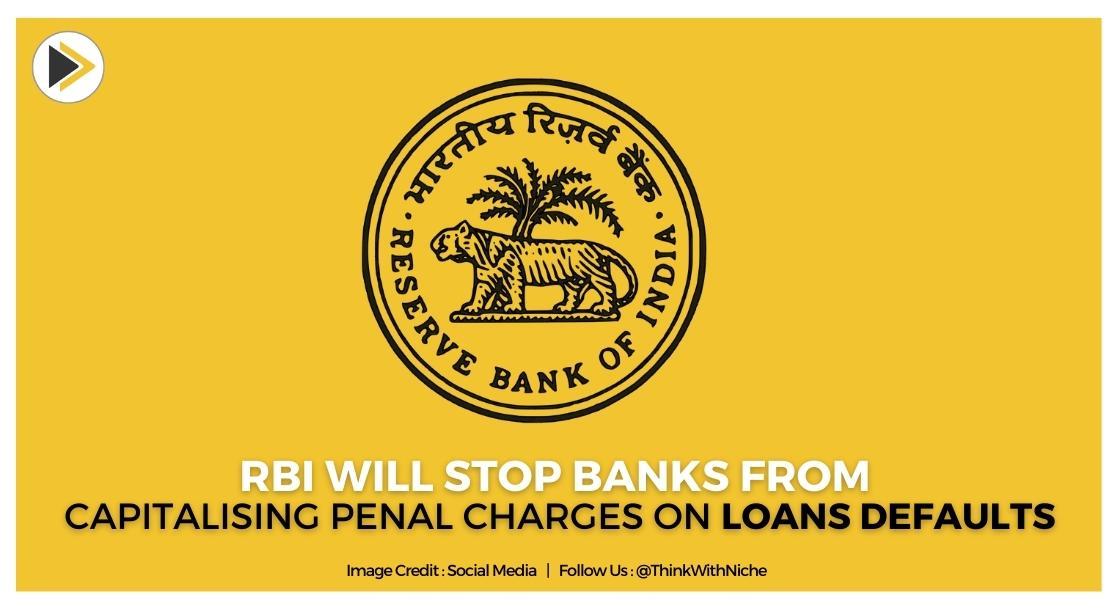RBI Will Stop Banks From Capitalising Penal Charges On Loans Defaults

News Synopsis
In an effort to streamline disparate lending practices, the Reserve Bank of India suggested on Wednesday prohibiting banks from capitalizing penalties and additional interest levied on consumers who fail on loans.
According to its drafting circular on 'Fair Lending Practice - Penal Charges in Loan Accounts'. the amount of punitive charges shall be commensurate to the defaults or non-compliance of significant terms and conditions of the loan contract up to a certain level.
Lending institutions have the operational freedom to develop board-approved policies for the levy of penal interest rates under the current RBI regulations. However, a lot of RBI-regulated entities (REs) employ punitive rates of interest in addition to the appropriate interest rates in the event that the borrower defaults on or fails to comply with the conditions under which loan facilities were approved. To standardize the procedures, the central bank has recently released draughts on 'Fair Lending Practice - Penal Charges in Loan Accounts'
"The intent of levying penal interest/charges is essentially to inculcate a sense of credit discipline among borrowers through negative incentives and to ensure fair compensation to the lender. "Penal interest/charges are not meant to be used as a revenue enhancement tool over and above the contracted rate of interest," according to the draught. However, it said that supervisory assessments have shown that the REs' inconsistent practises regarding the imposition of punitive interest and penalties are giving rise to grievances from and disputes with customers.
The draught states: "Determination of interest rates on credit facilities, including conditions for reset of interest rates, will be strictly governed by the relevant regulatory instructions issued in this regard. REs shall not introduce any additional component to the rate of interest." Penalty, if charged, for default/non-compliance of material terms and conditions of loan contract by the borrower should be treated as 'penal charges' and should not be levied in the form of 'penal interest' that is added to the rate of interest charged on the advances,
"There shall be no capitalisation of penal charges, i.e, no further interest computed on such charges. However, this will not affect the normal procedures for compounding of interest in the loan account," Further, RBI stated that it is important to understand that a loan's interest rate includes a credit risk premium that is suitable for the borrower's credit risk profile.
The statement read, "If the credit risk profile of the borrower undergoes change, REs will be free to alter credit risk premium as per the contracted terms and conditions, in terms of extant instructions,". Additionally, the penalties for loans approved to individual borrowers for non-business objectives shouldn't be more severe than the penalties for non-individual borrowers. It emphasised that "Whenever reminders for payment of instalments are sent to borrowers, the applicable penal charges shall also be communicated," Credit cards are excluded from the proposed instructions since they are covered by product-specific instructions, according to the draught. The RBI has requested feedback from the interested parties by May 15.
You May Like









